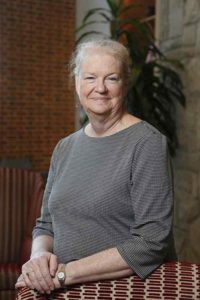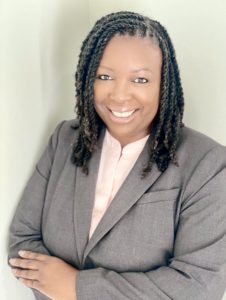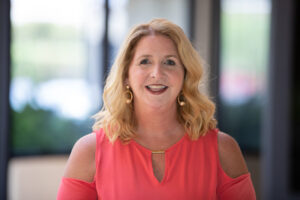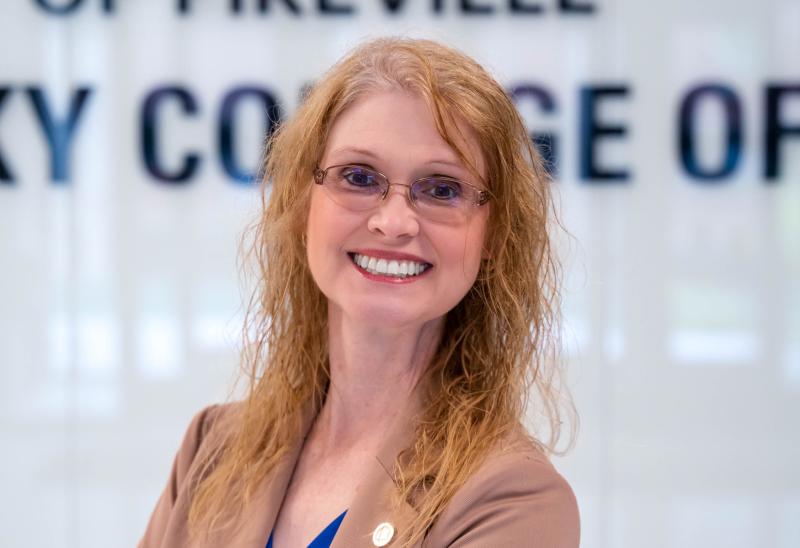

Renee Reeder, OD, FAAO, FBCLA, FSLS, FIACLE, FNAP, who became Dean of the Kentucky College of Optometry at the University of Pikeville in February, notes the special challenges and opportunities that come with serving rural populations – and educating the students who are prepared to serve them.
Dr. Reeder spent 21 years at the Illinois College of Optometry before joining UPIKE in 2018. She knew firsthand that urban areas have significant underserved neighborhoods, but it was still a “stark contrast” to the rurality of Pikeville. When she first interviewed at the school, in Pikeville, Kentucky–population less than 8,000–she recalls that there was no cell service on campus or on her drive back to the airport.
Greater connectivity has arrived, but there are unexpected challenges in providing care. “There is no public transportation system. There is no Uber and Lyft and a very limited taxi run by a single family. In Chicago, I took it for granted that my patients could take a bus or train and get to me. In Pikeville, there’s a medi-van service, but patients have to schedule that about three days in advance,” she says.
One of the very first patients she saw when she joined the school was a woman with a major abrasion. “I wrote two prescriptions and told her I needed to see her the next day. She told me she would not be able to arrange for another medi-van ride for four days–and neither of the two pharmacies in town had the medications I prescribed in stock,” Dr. Reeder recalls. “That encounter really changed my perspective.”
MISSION FOR THE UNDERSERVED
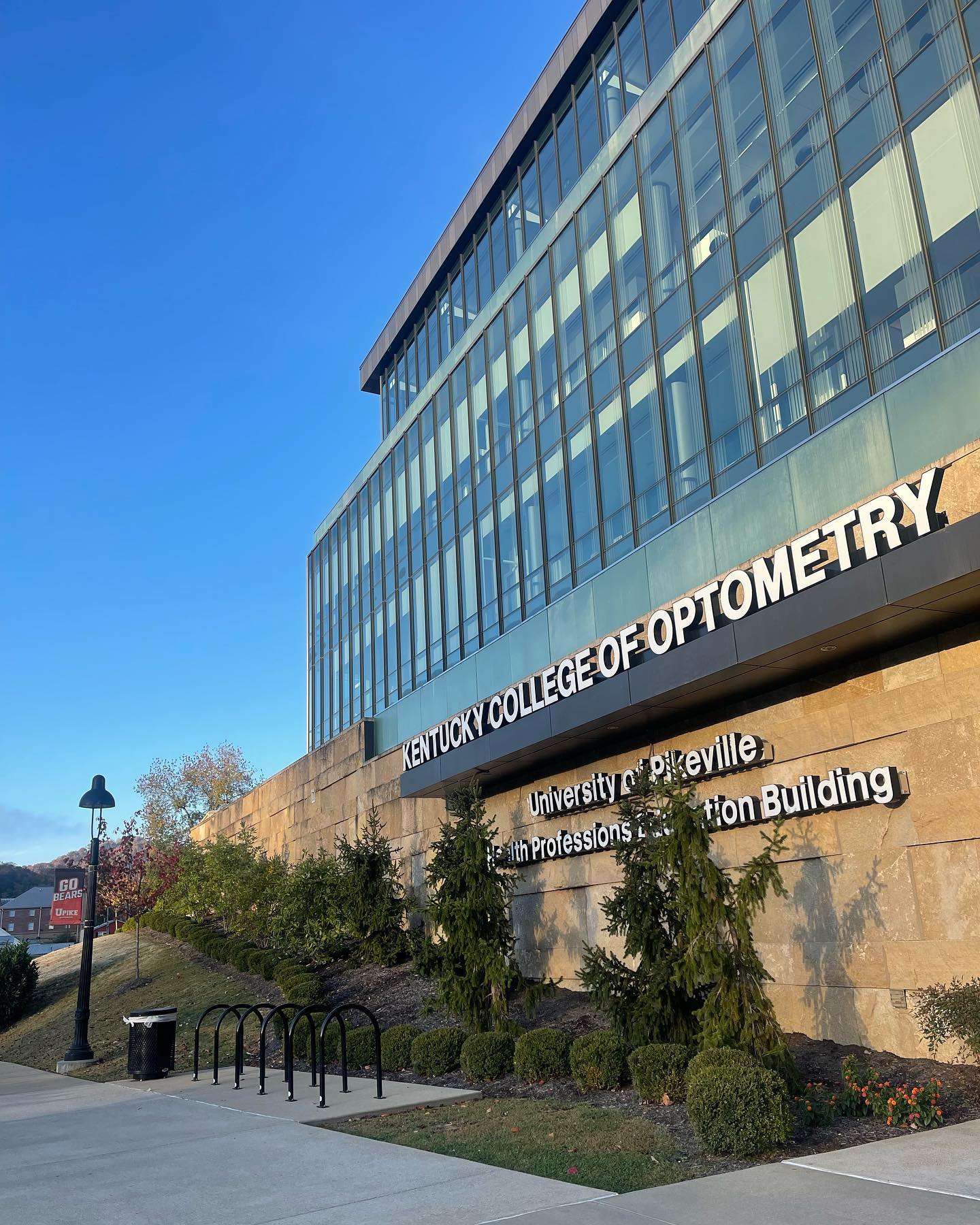

The University of Pikeville, or UPIKE, as it’s called, was founded in 1889–when the area had no high school even. It was founded with a commitment to create intellectual, cultural and economic opportunities for Appalachia. The university added a medical focus in the 1980s with a nursing school and added a school of osteopathic medicine in the late 90s. More allied health services and a social work college were opened, and soon, a dental school will open. The Kentucky College of Optometry was established in 2016, with its mission statement is to “develop leaders in therapeutic optometry through innovative education and a commitment to caring for the underserved.”
The university’s presence has made a tremendous different to the region. “Before, a lot of these patients did not have access to care, or what there was available was on a small scale. For specialty eye care services, patients would have to go to Lexington, two-and-a-half hours away. Now, we have patients coming from Lexington for our dry eye, specialty contacts and vision therapy services,” she says.
DEAN’S GOAL: MORE INNOVATIVE EDUCATION
Dr. Reeder says that the facilities and equipment are state of the art in the school. In Kentucky, the scope of practice for optometry is robust and includes laser authority, injectables and oral steroid prescriptions, for example. So students doing clinical rotations within the university system or state might be doing laser treatments in their fourth year. Students also have access to virtual reality technology and other resources.
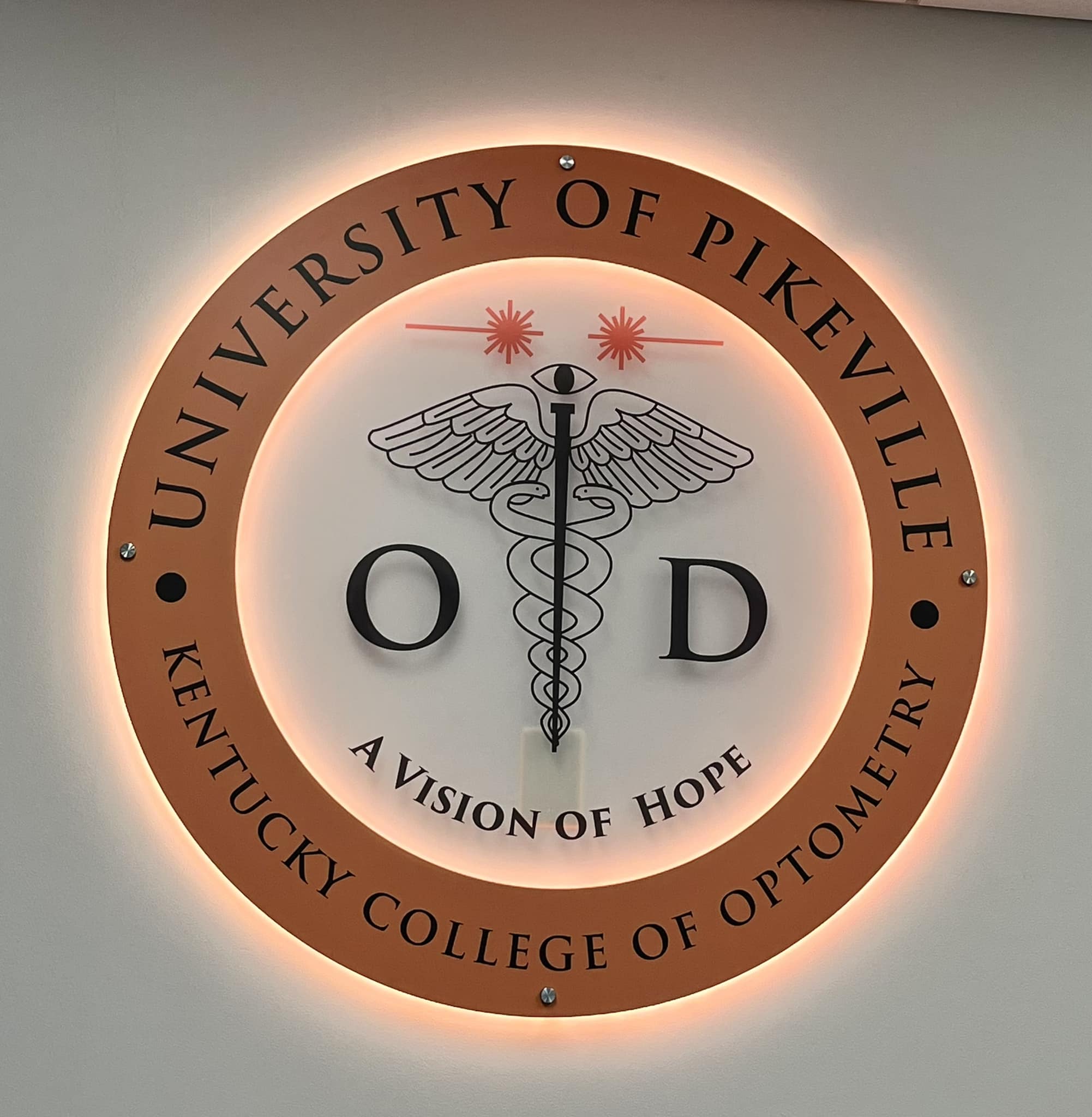

Dr. Reeder says she is continuing to build on innovations in teaching strategies. “Today’s learners are multimodal learners. We are working to present the education so that they can attain and retain that information better, not only for the board exams but, more importantly, in the exam room,” she says.
For example, she says, “Traditionally, students took courses like physical diagnosis, pharmacology and disease diagnosis as three courses, over three semesters. Now we are teaching that as one course over two semesters. We’re bringing pathophysiology, anatomy and specialty testing and treatment options all into the same class. So students will have a lab day of diagnostics in the middle that helps tie together why we do this, what we’re looking for and what the outcomes are. When pharmacology is tied to the diagnostic information, for example, it makes the education more cohesive and practical.”
Similarly, we are conducting a lab in our retina course on blood pressure and carotid auscultation, which can help them facilitate a better referral, she says.
COMMITMENT TO THE UNDERSERVED
The students who have come through the program are enthusiastic about the opportunities to practice optometry where they can make a difference. “A lot of our graduates have stayed in Kentucky,” although not all of them are in remote places. And she notes that the entrepreneurial streak among them is strong. “We have students who started a private practice cold. Our ‘private practice club’ is among our more robust.’”
The changes will keep coming as the school adds more pediatric services and perhaps business courses. Students will continue to work with students in other health schools. The results are showing up in increasing board scores–and in another measurable impact: greater access to care for the Pikeville community. “Patients are now able to say, ‘I was treated at Pikeville.’ It’s really special to be a part of this community.”
A Busy Year for Women in Academic Leadership
|
|
On Jan. 1, 2024, Karla Zadnik, OD, PhD, became interim provost at The Ohio State University. Read that story here. |
|
|
Keshia S. Elder, OD, MS, FAAO, became dean of the College of Optometry at the University of Missouri-St. Louis in September 2023; serving as the first Black female dean of optometry in the U.S. Read more here. |
|
|
Rachel A. “Stacey” Coulter, OD, MS, FAAO, FCOVD, became associate dean of clinical affairs at Nova Southeastern University College of Optometry in the fall of 2023. Read more here. |
|
|
Catherine Heyman, OD, FAAO, officially stepped into her role as founding dean for the High Point University (HPU) School of Optometry in High Point, North Carolina, in the summer of 2023. Read more here. |
Read more news from WO here.


